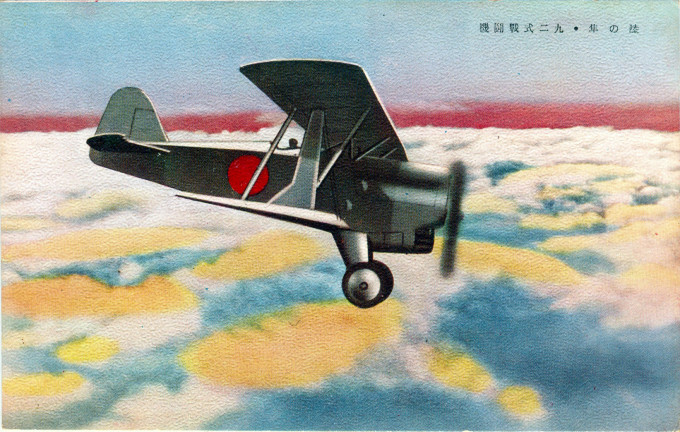“Following the destruction of the Kawasaki parasol wing design, a new biplane incorporating a water-cooled engine, was developed, the first prototype being completed in July 1930.It proved to be the fastest aircraft developed in Japan to date, with a speed of 320 kph – faster than the 310 kph achieved by the [British] Hawker Fury I.
“On 4 November 1930 it also became the first Japanese aircraft to climb to 10,000 metres. Finally, on 27 January 1931 a speed of 335 kph was achieved, and following the outbreak of the Manchurian Incident, the Army tested it again, adopting it as the Type 92 fighter in October 1931.”
– Japanese Army Fighter Aces, 1931-45, by Ikuhiko Hata, Yasuho Izawa & Christopher F. Shores, 2012
“The KDA-5 was designed by German aviation designer Richard Vogt to meet a Japanese Army requirement for a fighter biplane. Five prototypes were built by Kawasaki Kōkūki Kōgyō K.K. and first flown in 1930. Following testing, the aircraft was ordered into production in 1931 as the Army Type 92 Model 1 Fighter.
“After 180 aircraft were built, production continued with a structurally strengthened and more powerful Type 92 Model 2. Both versions saw action with the Imperial Japanese Army Air Force in Manchukuo (Manchuria), although it proved unpopular owing to its unstable take-off and landing behavior and being difficult to maintain, particularly in cold weather. A few were still in service in 1941 as trainers.”
– Wikipedia
Performance
Maximum speed: 320 km/h (199 mph)
Range: 850 km (528 miles)



Pingback: Kawasaki Ki-10 Type 95 fighter, c. 1935. | Old TokyoOld Tokyo